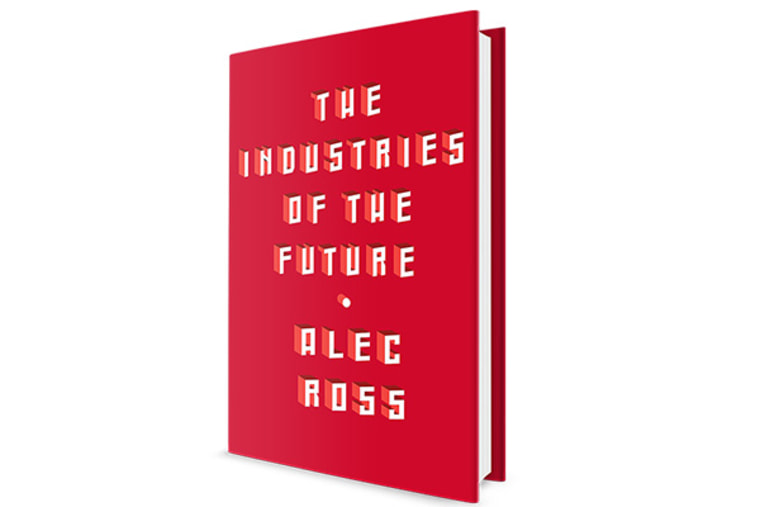When Alec Ross worked as a senior adviser to Secretary of State Hillary Clinton, his work took him to countries around the world to explore innovation firsthand.
His new book out on Tuesday, "The Industries of the Future," takes a long look at how robots, artificial intelligence and technology in general will shape the economy in the years to come.
Recently, a lot of people have been talking about the dangers of artificial intelligence. These aren't yahoos raving about the robot apocalypse — famous astrophysicist Stephen Hawking and Tesla founder Elon Musk have been among the most vocal.
The concern isn't just that computers will become sentient and rise up against the human race. It's that they will replace jobs and benefit only the Mark Zuckerbergs and Tim Cooks of the world.
Inequality is already high — according to a report released earlier this month by Oxfam, 62 individuals hold as much wealth as 3.5 billion of the world's poorest people.
"I don't take an entirely dystopian view of it," Ross told NBC News. He said that in 1870, when one half of Americans had agricultural jobs, there was worries of technology wiping out jobs. Instead, technology created new jobs in other fields and dramatically increased the amount of food produced.

"I don't take an entirely utopian view of it, either," he said. "I'm well-balanced, I have a chip on both shoulders."
Ross might hobnob with Silicon Valley entrepreneurs and investors, but he said that growing up in West Virginia and teaching at a public middle school in Baltimore gave him a unique perspective.
"I saw close-up how rural and urban areas where affected by globalization and the loss of America's manufacturing base," he said.
Related: 'Workshop of the World' China Bets on a Robot Revolution
One thing is for sure: the robots are coming. In 2014, the last year for which the International Federation of Robotics has statistics, 229,261 industrial robots were sold — the highest number in history and a 29 percent increase from 2013.
And robots are becoming more advanced. They are able to perform more delicate tasks, like chopping with a knife and driving a car, and softer materials have allowed them to interact with humans without fear of injury.
They are also becoming smarter, but the real jump will come in the near future with advances in cloud computing. Before, scientists had to figure out how to pack a lot of information and processing power inside of one robot. Now robots can simply connect to their "brains" in the cloud.
"I think robots from the movies of the 1970s are going to become the reality of the 2020s," Ross told NBC News.
People with jobs that require creativity, critical thinking and people skills should be safe, he said. But a lot of people will be vulnerable.
"I can't help but worry about people with relatively moderate education and skills in the United States, and how economically viable they will be in tomorrow's economy," he said.
Part of the answer is to reform vocational schools and community college so that they're focused on the latest technologies, he said. He also believes the government needs to adjust to how millennials and companies think about work in the modern age.
"I'm 44 years old, and I see millennials working very differently than my generation did," he said. His father's generation stuck with one job for 30 years, he said, while his generation stuck with one industry.
The next generation isn't "thinking in terms of one employer or industry." Young people are much more likely to work by taking projects from different companies across several industries — which sounds great, except for when things go wrong.
"If this is the inevitable trajectory that labor is on, then we have to make the safety net stronger," he said, noting that historically in the U.S., corporations took care of sick or injured employees. That isn't always the case anymore, with contractors and freelancers taking on more risk.
"If we are going to create trillion dollar industries and if that wealth is going to be unequally distributed," he said, "then we need to make sure people aren't going to fall through the cracks."
